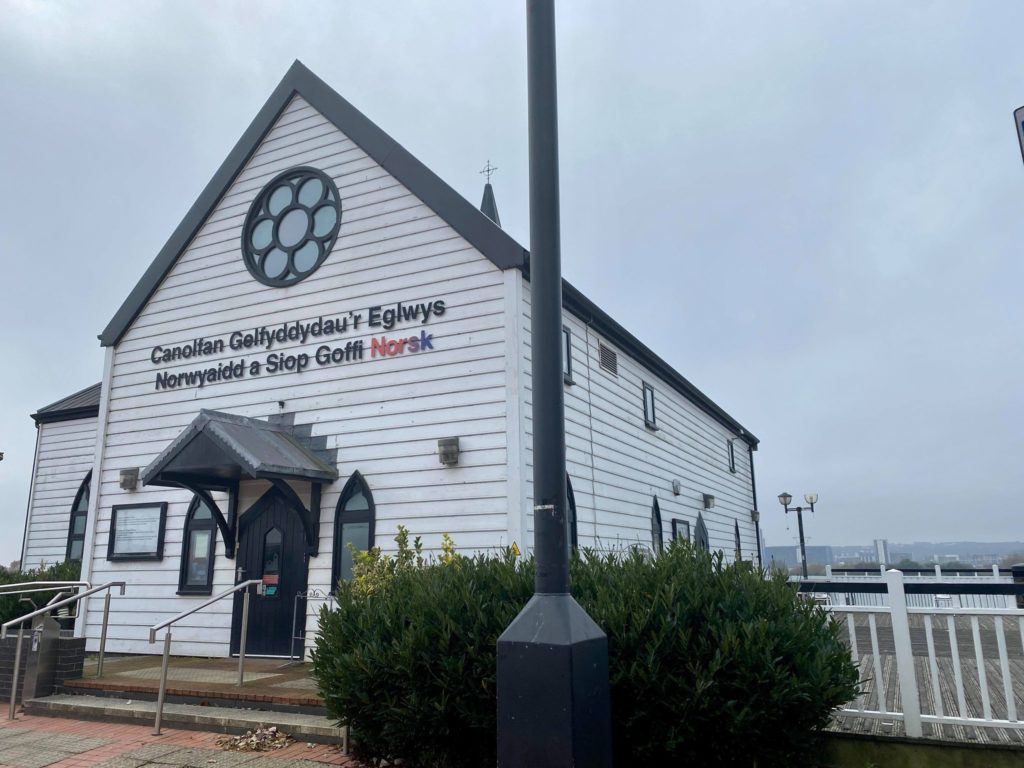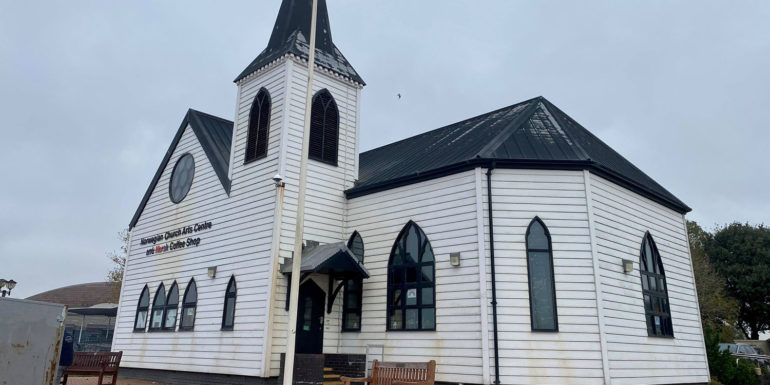Civic Society claim plans for a Museum of Military Medicine threaten Cardiff Bay’s only green space
PROPOSALS to construct affordable apartments and commercial units in Butetown and a new Museum of Military Medicine in Cardiff Bay have met with opposition.
Plans for the new museum come after the closures of the The Doctor Who Experience and the Butetown History and Arts Centre (BHAC).
Cardiff Civic Society are worried that the proposed new museum would threaten green space while Butetown residents say developments there would compromise the unique character of the area.

The historic Norwegian Church next to Britannia Park, Cardiff Bay (Credit: Alexandra Bullard)
Nerys Lloyd-Pierce, chairman of the Cardiff Civic Society, explained how the development would affect Britannia Park.
She said: “Plans for the initial museum show the loss of the park and green space. The design of the building is four storeys high and will encroach onto the park itself which is appalling. Butetown has well below UK average green space and building on what little there is cannot be justified.
“There was a massive campaign to protect it when Associated British Ports (ABP) wanted to build a block of flats on it three years ago. After this was shelved, the council bought Britannia Park sensibly to protect the public open space.
“But now they want to put a museum on top of it. It will destroy that sense of freedom and openness. Cardiff Council is only interested in developers and the people of Butetown are being overlooked.”
More than a hundred people have signed a petition against the council‘s proposal to transform the green space.
The proposed museum is currently based at Aldershot barracks in Surrey, but has wanted to relocate to Cardiff since 2016 because the Ministry of Defence wishes to stop subsidising secondary activities like museums.
But the museum plan is not the only one in the area facing opposition.
The Paddle Steamer community cafe, a unique and popular facility in Loudoun Square, now faces closure and demolition due to redevelopment plans which some local people claim will have a detrimental impact on the Somali and Yenemi communities.
Keith Murrell, who runs the Butetown Carnival, said: “I can say that the [Butetown] community has been systematically disenfranchised for decades – there simply is no community enfranchisement at all: and ‘heritage’ is a recurring theme in this process.
“The true community heritage is not lost at all, but the idea of Butetown / Tiger Bay heritage as a ‘product’ has been misappropriated, misrepresented and mismanaged for many years – so much that this has now become a part of the history itself.
“From my limited understanding and knowledge, the Museum of Military Medicine was not considered viable in and of itself in other locations. I worry that once this museum is built it would be underwritten by public funding for the foreseeable future, come what may.”
The argument is that if the museum were in a more public location, then it would attract more visitors and hence be able to become financially self-sufficient.
However, Cardiff Civic Society claim that the numbers do not add up. The UK Treasury has provided £2m towards relocation but the grandiose vision the museum is now proposing, including a state-of-the-art immersive Deep Space, would cost £30m.
Many residents will recall the closure of the Butetown History and Arts Centre which, despite public funding, finally went bust and closed its doors in 2016.
Keith added: “It’s possible that some different faces would have had more success in raising funding for the Centre. But, in fact there was very little community goodwill or interest in the BHAC: having been disenfranchised throughout the life of the project.”
Many residents, including Keith, want to support a different approach to any new project. There is a petition to the Welsh Government calling for a ‘Tiger Bay Museum’ to act as a permanent tourist attraction instead of building the military museum.
Cardiff Civic Society have stated that they would not support another project in this location.



